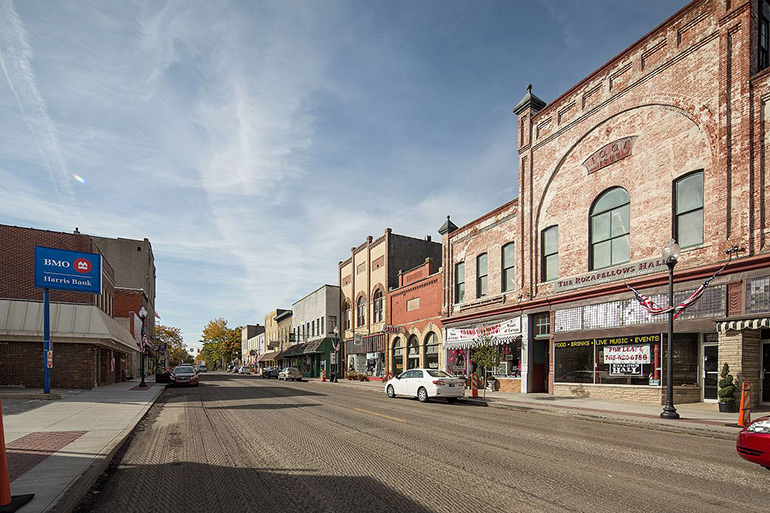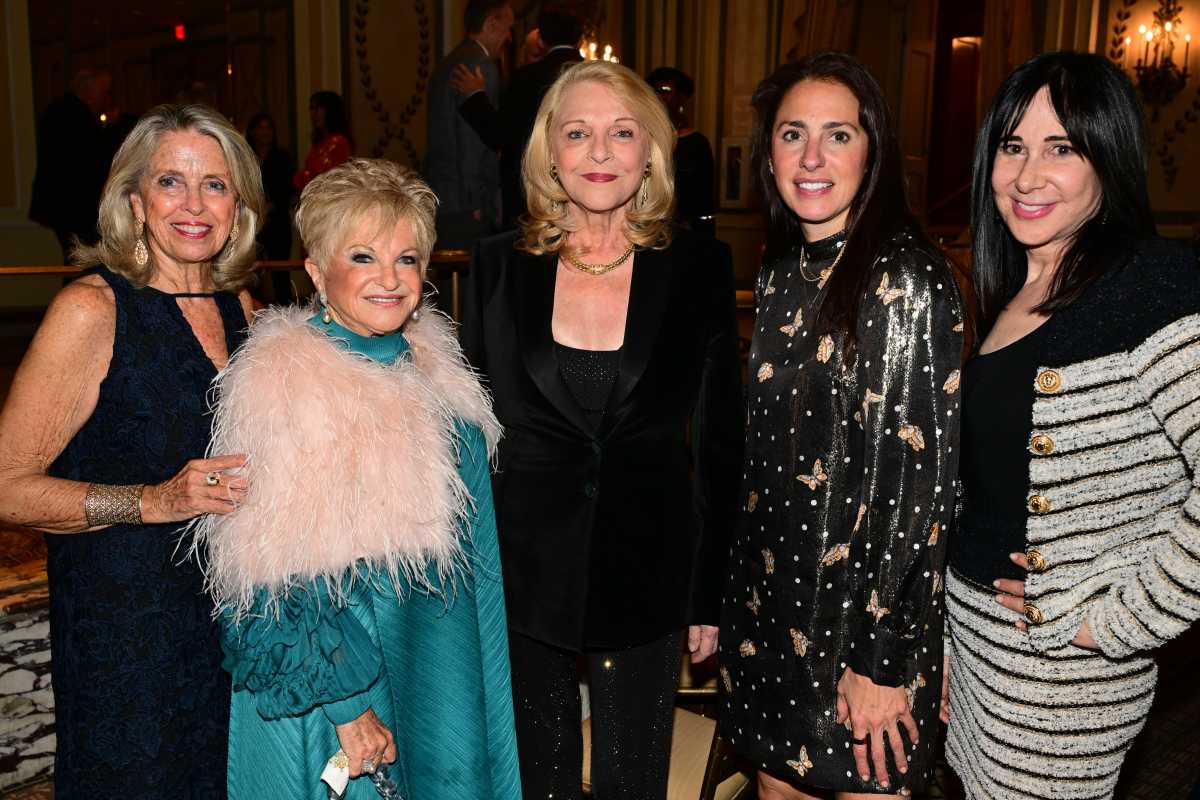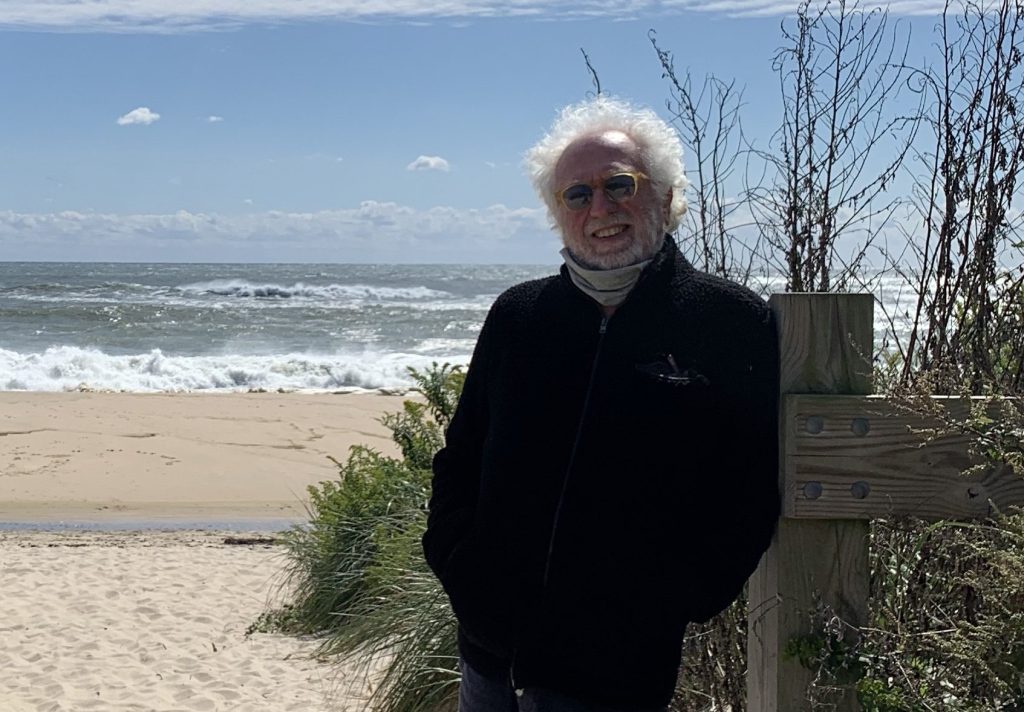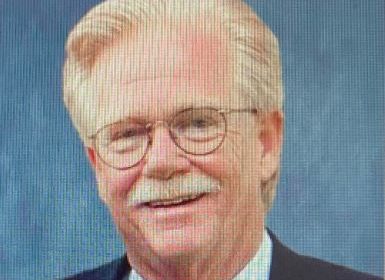Danny Peary Talks to 'Monrovia, Indiana' Director Frederick Wiseman

For movie trivia fans: What director has had the most films debut at the Film Forum in New York City? Of course, the title of this posting gives away the answer. Eighty-eight–year-old Frederick Wiseman has had 13 of his 42 documentaries debut at the nonprofit theater in its 48-year history.
The latest is Monrovia, Indiana, which premiered at FF on Houston Street last Friday before it expands to venues around the country this Friday. I’ve been a fan of Wiseman’s films since his career began with a bang in 1967 with Titicut Follies, a scathing look at Massachusetts’ Bridgewater State Hospital for the criminally insane, but I’ve never been able to explain to people why they are worth seeing in a theater or on PBS.
When I describe them scene by scene, and I’m sure others have the same problem, they seem dull, when in truth they’re fascinating, even when what Wiseman has chosen to put on screen is mundane. Even the well-written Synopsis in the Monrovia, Indiana’s press notes can’t make it sound appealing.
Here’s an Excerpt: “Located in mid-America, Monrovia, Indiana (population 1,063) founded in 1834, is primarily a farming community. The film is about the day-to-day experiences living and working in Monrovia, with emphasis on community organizations and institutions and daily life. The film explores the conflicting stereotypes and illustrates how values like community service, duty, spiritual life, generosity and authenticity are formed, experienced and lived. The film gives a complex and nuanced view of daily life in Monrovia and provides some understanding of a rural, mid-American way of life that has always been important in America but whose influence and force have not always been recognized or understood in the big cities on the east and west coasts of America and other countries.”
Only nerdy civics teachers and anthropologists will be wowed by that excerpt—am I right? And I’m not sure that it gives a proper description of what Wiseman intended his film to show us. Each viewer must decide for themselves what his film is trying to tell us. I admit I’m not sure myself, but I was spellbound for 143 minutes, even though I’m not as keen as Wiseman is about two of his familiar themes: process and routine.
Throughout the film, Wiseman takes his camera out to the countryside, to pastures, fields, and farms, where cows and pigs far outnumber people. In town, we are taken into a church and a school; a pizza parlor and tattoo parlor; a coffee shop and grocery; a gun store and veterinary clinic; a barbershop and a used car lot. We are privy to a wedding, a funeral, and meetings of the town council, Freemasons, and the Lions Club.
We see some people test mattresses and others try to keep their eyes open at an auction and a Bible Study class. And while there is no narration, no questioning of residents by Wiseman, or a musical soundtrack, we hear many voices and a variety of tunes being sung or played by people on the screen (as well as in the background), so we’re always listening. We listen to lectures and sermons, monologues and conversations, including those by old-timers inside a cafe, when Wiseman’s usually still camera pans the participants as they chat about such topics as carrots.
Somehow Wiseman leisurely and cleverly strings all these sequences together to come up with a cohesive dramatic structure and we get the sense that we really know Monrovia, Indiana and its residents.
Watch the trailer:
Last week, at the Film Forum, I had this brief, spirited back-and-forth with Frederick Wiseman about his new film and his filmmaking style. Rather than have the transcript be completely organized, I’ve let it bounce around from topic to topic and go off-topic. Just like a conversation in a Wiseman movie.

Danny Peary: Your first film Titicut Follies made a huge impression on me when I was at the University of Wisconsin beginning in 1967, the year of its abbreviated release. Considering the film was soon banned because of a drummed-up privacy issue and was taken out of circulation for years, how was I able to see it on campus?
Frederick Wiseman: There was a time when it could be shown if I gave the court in the Attorney General’s office a week’s notice of every screening and somebody who ran the screening signed an affidavit saying that the people watching it were within the class of people allowed to see it. That class consisted of doctors, lawyers, judges.
DP: But I wasn’t any of those. I was a student.
FW: Students in certain fields were allowed to see it.
DP: I was just a student who liked watching movies. A lot of film people there bonded with you because your film exposed some ugly truths about the treatment of mental patients—and because of the style of your film. It was in black-and-white, it was brief, and I think your camera moved more than it does now. Has your style evolved?
FW: I think that I’ve learned something over the years, but that’s not for me to say. I think I’ve gotten better technically and editorially. Otherwise, my work would be static. I know more about how to make a movie.
DP: Are your films critic proof? Because they can only guess the reasons you initially shot and then kept what is on the screen in your films, how can critics judge your movies?
FW: Any way they want.
DP: But what do you consider a valid approach to judging your movies? Would it be about your choices of what to shoot and how you cut all your images together?
FW: Movies depend on good picture, good sound and good editing. And good thinking.
DP: But criticism usually centers on figuring out what the director was thinking when he made one choice over another.
FW: I’ve said often that my movies are more novelistic than journalistic. A novelist doesn’t tell you on the first page what the themes are. The reader has to figure it out from what goes on in the book. That’s true of my movies.
DP: You have often said that your films are subjective, so are they successful in your mind if viewers end up thinking what you think? Or, since you have stated that you don’t think about the audience when you make movies, do you care?
FW: They can think whatever they want. What interests me is making the movie. Obviously, I want people to like my movies, but whether they do or not, they don’t necessarily have to see things in it that I see. My job is to make my movie.
DP: When I mention the difficulty of writing criticism about your movies, it’s because smart critics have come up with entirely different views of the same films. For instance, one critic wrote that now is not the time for you to make an apolitical film like Monrovia and Richard Brody of The New Yorker wrote that Monrovia is “ferociously political.” What is your reaction?
FW: That Richard Brody is entitled to his point of view. So is the other person. I don’t comment on what people write about my movies.
DP: Would you have made Monrovia, Indiana when you were young and making such documentaries, Titicut Follies, High School and Basic Training? It seems to have been made by a very patient filmmaker.
FW: I’ve always been very patient. You can’t make these movies unless you’re patient. I don’t intrude on the people being filmed and then I have to be patient during the editing because it takes a lot of time to figure it out, with any subject.

DP: But would this subject have interested you then?
FW: That’s a bit like asking, “If you had a sister, would she like soup?” I didn’t make it then and I hadn’t yet thought of it. But in retrospect, yes it would have. I’m not sure that means anything.
DP: Well, I have the feeling you would not have made it then. I think it’s more the work of a mature filmmaker.
FW: Well, that may be the case. In the choice of subject matter and its themes, it’s an older person’s film.
DP: You have said your films are biased because you are a subjective filmmaker, but that they “fairly represent what I felt was going on at the time of the original event.” What do you mean by “fair?”
FW: What I mean by “fair” is very subjective. If asked, I think I can defend the choices I make when editing a sequence in relation to the totality of all the sequences in the rushes.
DP: You’ve called places “the stars” of your movies…
FW: Because I never follow one person…
DP: So in this film and others, were you trying to be fair to the place more than the people?
FW: In essence I don’t make a distinction because the people are the place.
DP: In an interview with you that I watched on YouTube, you said you decided to make a documentary about a place, Monrovia, Indiana, because a friend recommended it and had a contact there who would introduce you to everyone?
FW: A friend of a friend told me about Monrovia.
DP: So can anybody come to you and recommend a town and that would interest you? For instance, I live in Sag Harbor and if I said I knew someone who could introduce you to everyone in town, would that interest you to consider filming there? I wouldn’t think that anyone can recommend any town to you and you’ll do it if there is someone to take you around.
FW: Well, no. I made three or four movies about small towns, but that doesn’t mean I want to make 20 of them. I don’t know if I want to make another film about a small town. But if I wanted to make a film about Sag Harbor, that would be the way to go.

DP: Why did you want to make a documentary about a small Midwestern town at this time in your career?
FW: Because I hadn’t done it before and thought it might be interesting.
DP: When you say “interesting,” what do you mean?
FW: Interesting to me. Each of these films is its own adventure. I’m adventurous. I don’t go to the North Pole or Mount Everest, but I go to places that I’m unfamiliar with and try to learn something about them.
DP: Was there a pitch to you about Monrovia?
FW: No, no. I came to them. The chain was this: I told a friend of mine who is a law professor in Boston that I wanted to make a film about a small town in the Midwest. She told me that she had a friend who is a law professor at the University of Indiana, whose family has lived in the same small town since the beginning of the 19th century. By chance I was about to go to the University of Indiana to show some movies, so I called him up. He said, “Come a day early and I’ll take you to Monrovia and introduce you to my cousin.” So he introduced me to his cousin who works in the funeral parlor.
DP: In the credits, you thank someone named Maggie Bauer for her help. Is that the person?
FW: Yes. We got along and she said she’d help me meet people, which she did. She took me around. And when I’d call the woman who runs the pizza parlor or the guy who owns the supermarket or the superintendent of schools, Maggie had already called them. I had the Good Housekeeping Seal of Approval.
DP: My guess is that no one in Monrovia knew of you.
FW: Well, Maggie looked me up right away on the web. She hadn’t seen any of my movies but I gave her some DVDs and she watched them. And it was apparent to me from some of the questions the residents asked me that they also had looked me up on the web.
DP: Do you think they knew who you were before then and had seen any of your movies?
FW: No.
DP: Was that good situation for you?
FW: It was neither good nor bad. If they looked me up and liked what they read about me, it helped. If they didn’t like what they read about me, it didn’t help.
DP: Before you went to Monrovia, did you have something like a mission statement for what you wanted to accomplish shooting there?

FW: No. The only thing I say to myself before I start shooting a film is, “If I hang around long enough I’ll have enough material to cut a film.”
DP: I find it interesting that you have said that you do almost everything in the editing room. That makes sense to me except that you say you don’t find your themes until you edit.
FW: That’s true with each film I do. If I knew the themes in advance I would be too restrictive in the shooting. The themes emerge through the editing. For this film, I’d been in Monrovia for only two hours before I started shooting. I hadn’t been to a library in 50 years before I made Ex Libris.
DP: I’ve wondered: Did you choose the New York Public Library because it’s on 42nd Street and you were making your 42nd film?
FW: I didn’t think of that.
DP: Don’t you know yourself well enough that you can predict the themes you will eventually have in your movie?
FW: I’ve said it before that the model is Las Vegas. You pick a subject and you roll the dice when you decide to make a movie about it, on the assumption that if you use good judgment and are lucky, you will find enough material from which you can cut a film.
DP: But during the editing process, have you ever said to yourself, “I need another shot” and gone back to get it?

FW: I’ve gone back twice. When I made the film about the school for the deaf and blind because I went down there with the idea of making one movie and ending up making four and I had to go back to get material. And I went back to the police in Kansas City, Missouri because after three or four months I realized I didn’t have enough material in the station house.
DP: Did you feel like you were breaking your own rules to include footage that you didn’t shoot during a certain time frame?
FW: Not at all. There are no rules. I’m not rigid that way. There has never been a rule where I shoot for 10 weeks and that’s it. I’ve shot four weeks, I’ve shot six weeks, I’ve shot eight weeks, I’ve shot 10 weeks, I’ve shot 12 weeks. During the editing, if I don’t have enough material, it’s fine if I go back. As I said, that has happened only twice.
DP: I’m sure you know that Monroe County voted about 65% for Trump in 2016. So while Trump is never mentioned in your film, he is definitely, for viewers if not for you, the elephant in the room. While making the film, did you think that all the people in your film probably voted for Trump?
FW: Not all of them voted for Trump. I was struck by the fact that I heard no political conversation at all while I was there.
DP: That makes sense to me in that town.
FW: In retrospect, it makes sense to me, too.
DP: I think one theme of your film is that there is a disconnect between Indiana and Washington. Do you think that the people in Monrovia are isolated and simply do not care about national politics?
FW: I really don’t know why they don’t talk about politics.
DP: How long were you there shooting?
FW: Ten weeks.
DP: Ten weeks in this town without there being political discourse is interesting in itself.
FW: Exactly. But I’m not characterizing who they are. What I think about the people in Monrovia, Indiana, is what you see in the film.
DP: When you were filming the people in Monrovia were you ever thinking that some were being disappointingly uninteresting? Or can uninteresting be interesting?
FW: I don’t think in those terms. I think about what’s going on and whether it will be a good sequence in the film.
DP: I always think your films are interesting…
FW: I hope so.
DP: …even when what you’re showing isn’t what I’d normally think of as interesting. That’s one of the strange things about your movies for me.

FW: When I watch the Lions Club meeting when they are discussing a park bench, I find that very interesting.
DP: Me, too.
FW: But somebody else may not.
DP: Sag Harbor has town council meetings and there’s much debate about such things as outdoor seating at restaurants and the best way to balance expanding business and expanding residential areas. That conversation goes on and on and on, year after year after year. I’m sure if you went to a Monrovia town council or Lions Club meeting today there would be the same conversation that you filmed.
FW: Yeah, or a similar conversation.
DP: Maybe it’s because of the funeral scene and shots of the cemetery, but I was thinking of Thornton Wilder’s Our Town while I watched your movie. Was that an influence on you?
FW: I have no idea what is an influence on me. But I understand why you think that.
DP: In an interview with you about this film, the theme of mortality was discussed.
FW: That’s certainly a theme.
DP: Isn’t it more about living? Or is that the same thing?
FW: Well, what cuts across all of my films is what constitutes daily life.
DP: People in un-staged situations.
FW: Right.
DP: Why do you think that has such appeal to you?
FW: Because I think in ordinary life there are things that are funny and sad, and tragic. That’s great literature. I don’t invent or imagine these people—I recognize them when I see them. And I use them to try to construct a dramatic narrative. I think film technology allows me to record all this. You’d have to be Dostoevsky to write some of the sequences in my films. I’m not Dostoevsky, but I what I do is recognize their value when I come across them.
DP: Have you ever interviewed anybody in more than 50 years of filmmaking?
FW: No.
DP: You shot in the high school in Monrovia. Since you made High School, have you felt that when you make a film about a community you have to include scenes in a high school to get a full picture?
FW: I don’t have to, no. I thought it would be interesting. As it turned out, the high school experience is very important to the people of Monrovia.
DP: Did you feel at all squeamish while filming that scene in the gun store?
FW: No. I asked permission from the owner of the store and I was very pleased that he gave it to me. I just waited around to see what would happen.
DP: I think the people who shop there would creep me out.
FW: I don’t have any objection to people who want to hunt. But I don’t think you need an assault rifle to hunt a deer.

DP: You begin your film with bucolic imagery, farm country, and you end it with another outdoor scene, where a coffin is lowered into a gravesite at a cemetery—a return to nature.
FW: Yeah, it all is supposed to fit together. Before the film is finished I have to be able to explain to myself why each shot is there and what its relationship is to the shot that precedes it and follows it, and how the first 10 minutes relates to the last 10 minutes. I have to be able to explain every single shot in the film.
DP: Are you happy about all the attention and positive reaction your film is getting?
FW: Yeah. Just this morning I’ve been able to read some of the reaction. I have no objection if people like the film.
DP: Do you find it interesting that your career has gone on this long. Over five decades?
FW: Well, I’m certainly grateful that it has.
Danny Peary has published 25 books on film and sports, including Cult Movies,Jackie Robinson in Quotes, and his newest publication with Hana Ali, Ali on Ali: Why He Said What He Said When He Said It, about the origins of her father’s most famous quotes (Workman Publishing).









